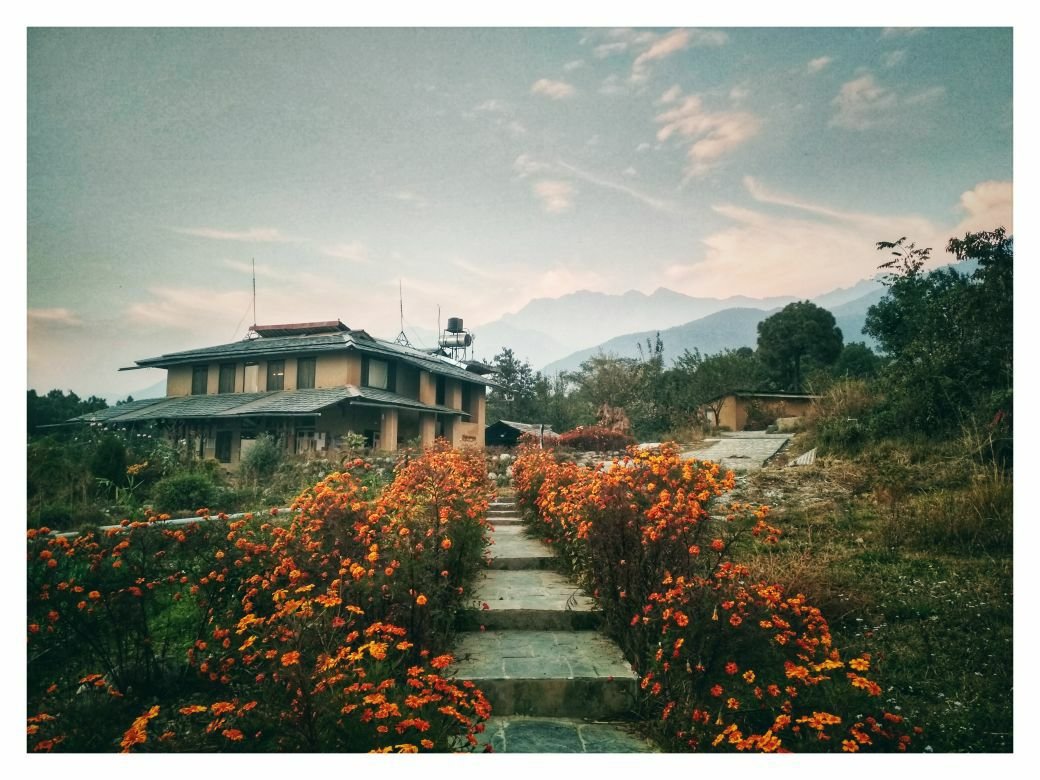
These days, the story of development is synonymous with the story of progress. The city is the shiny, sky-scraping future—and the village, the dusty, idle past. But are the urban and rural as disconnected as they seem? How do the stories we tell and those we don’t shape the ways we see the world?
On this six-week experiential storytelling program, students will travel to India’s Western Himalayas to investigate how city and country come together through the mountain landscape. With professional journalists and local environmental practitioners as guides, students will, amongst other things, walk rivers and interview the communities along their banks; visit hydropower projects and study the political ecology of infrastructure; and trek around the Great Himalayan National Park to complicate the relationship between conservation and ecotourism. Along the way, they will hone a critical and creative storytelling toolkit.
Aimed at the intersection between the humanities and social sciences, this program is open to students of all backgrounds. And while you should be prepared to read and write everyday, you need not identity as a writer or even aspire to be one!
Key Features
Spend six weeks in India in the mountainous state of Himachal Pradesh, based primarily at the renowned Sambhaavnaa Institute (more below!).
Participate in workshops with community researchers and activists on the politics of development, historical and contemporary forms of colonialism, and the relationship between caste, gender and social justice.
Cultivate a critical storytelling toolkit, including interviewing and field reporting techniques, and hone your own storytelling voice on the page and around the fire.
Study and trek through the Great Himalayan National Park, along the way meeting with the local community and experiencing the breathtaking scenery—perhaps even catching a glimpse of the endangered Western Tragopan pheasant.
Visit sites of historical and ecological importance, including tea gardens and local hydropower projects.
Learn about how the daily life of villagers is entangled with international development and conservation initiatives.
15 credits through Western Washington University
Program Information
fall QUARTER
-
Tuition - $4,320
Program Fee - $4,178
Deposit - $1,000
WWU Fees - $1
All costs listed are estimated. Please see Western Washington University’s budget sheet for more information on billable and non-billable expenses.
INCLUDES:
Tuition and fees for 15 credits through Western Washington University based on rates in Fall 2023
6 weeks traveling in India; dates subject to change but will fall within Fall Quarter
Lodging & meals (B, L, D)
In-country transportation
Admissions (temples, parks, etc.)
Treks and other excursions
Travel health insurance
Carbon offset for international travel
NOT INCLUDED:
Airfare & trip insurance
Passport & visa
Immunizations/personal medical expenses
Books & supplies
Independent travel & personal expenses
What will you do in India?
We will spend the first few days in Delhi acclimating to before traveling north to Himachal Pradesh, where we’ll be based primarily at the beautiful Sambhaavnaa Institute in the lap of the Dhauladhar mountain range.
Each day at might include:
Language lessons to begin to gain a deeper understanding of local culture.
Field trips to notable cultural and ecological sites in the nearby town of Palampur, including tea gardens and local hydropower projects.
Journal group, electives, and student-taught classes.
Workshops with community researchers and activists.
Midway through the program, we will head east to the Tirthan valley, home to the UNESCO-designated Great Himalayan National Park. We will move through the park’s Ecozone, interviewing local guesthouse owners, pastoral shepherds, tour guides, and visitors, before heading up into the park’s protected areas for a multi-day trek towards the cherished alpine meadows. The program will conclude back at the Sambhaavnaa Institute.
Community Partner: Sambhaavnaa Institute of Policy and Politics
Founded in 2004, the Sambhaavnaa Institute is an alternative learning and living space for those concerned with cultivating social and political change. Year-round, the Institute hosts student groups for workshops on topics ranging from the politics of development; petrochemicals and plastics; caste, gender and social justice; ethnographic research methods; and more.
Nestled in the small village of Kandwari, in the lap of the mighty Dhauladhar mountain ranges in Himachal Pradesh, the campus was designed by a renowned architect using traditional techniques and local materials. Atop lodging, multiple indoor and outdoor workshop spaces, the nonprofit also hosts a farm, cowshed, tea garden, and seed bank.
Have Questions?

Trip Leaders
Abe Lloyd
WWU Faculty Member, Nepal Program
Bipin Lama
Nepal Program Manager
Yardain Amron
Learning & Communications Coordinator
Ready to join us?










